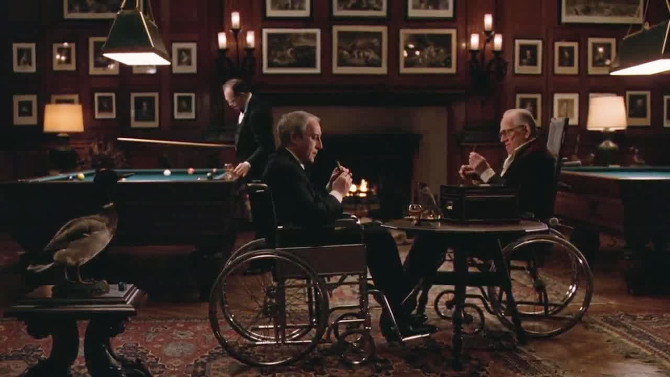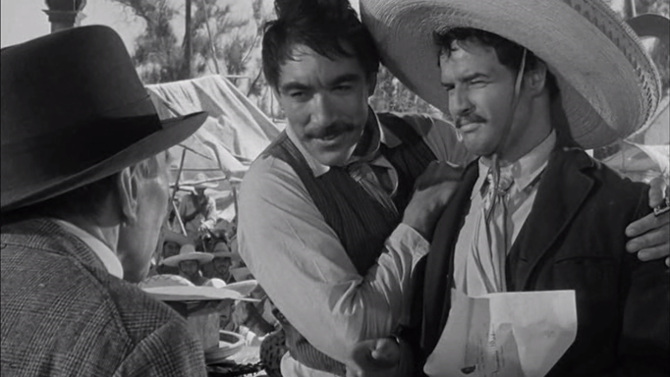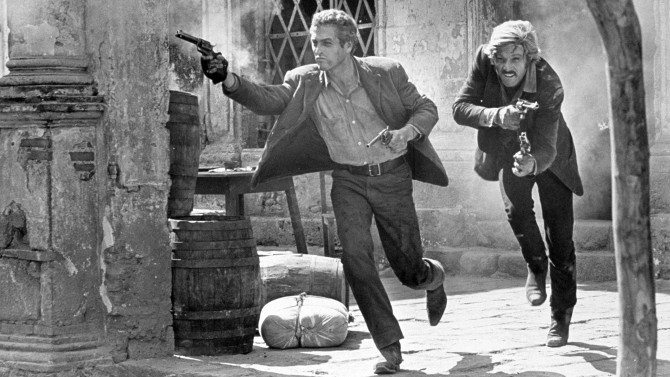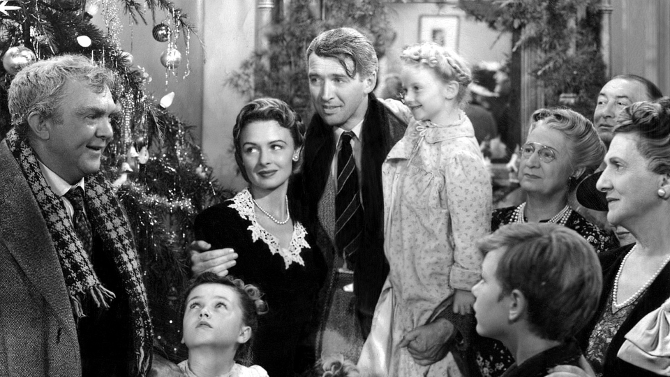
Safety First
Like a severe and utterly serious version of Stanley Kubrick’s 1964 satirical dark comedy Dr. Strangelove or: How I Learned to Stop Worrying and Love the Bomb, you would think that Fail Safe would have been the original release in theatres that was then later spoofed, yet that is not the case. Released approximately six months later in the same year, as you might imagine, it led to very poor returns at the box office – dare I say it (as the film deals with this subject matter)... it was a bomb! Despite that, over time, it has become a bonafide classic. Based upon Eugene Burdick’s 1962 novel of the same name and directed by Sidney Lumet (Dog Day Afternoon), he introduces us to our main players by way of little vignettes.
-
Star Pick with Hayley Atwell
 Garden State of MindBeing ThereFebruary 14, 2017
Garden State of MindBeing ThereFebruary 14, 2017Perhaps more relevant today than it was when it was released, Hal Ashby’s 1979 feature film Being There, based on Jerzy Kosinski’s 1970 novel of the same name (he also wrote the screenplay), speaks to the fickleness of fame – how, by random happenstance, one can be projected into a position of power and ‘celebrity’. Some time back, I spoke to actress Hayley Atwell. A major player in the Marvel universe, she has starred as Peggy Carter in four films, including Captain America: The First Avenger and its 2014 sequel. This spawned the critically acclaimed series Agent Carter, which sadly got cancelled after two seasons. Currently starring on the ABC show Conviction, the British star has also appeared in excellent smaller movies like 2012's The Sweeney and 2008's The Duchess, as well as the entertaining mini-series The Pillars of the Earth. When I posed my favourite question to her (i.e. her favourite film), she had two prompt responses. Speaking of her love of Bette Davis, it is fitting that one of her top films was All About Eve, mostly due to the superb performance from the iconic actress. Secondly, she spoke of the above mentioned Being There. Stating that she loved the book, she originally knew nothing about there being a movie. When she finally saw it, like the novel, it stuck with her, including Peter Sellers’ amazing portrayal as the lead character, making it one of her all-time favourites.
-
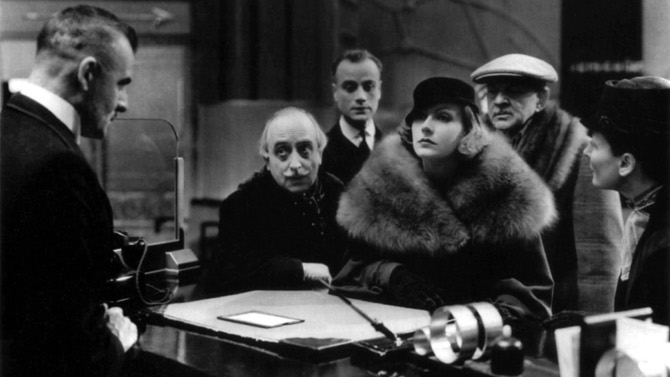
A Grand Old Time
Grand HotelFebruary 12, 2017"Grand Hotel. . . always the same. People come, people go. Nothing ever happens". But we know this is not so. The winner of Best Picture at the 1932 Academy Awards (the only film to ever win the big prize without being nominated for any other Oscar), Grand Hotel is the first film to ever bring together a who’s who cast to create an ensemble. Breaking the mould, where studios would have had only one or two of their stars in a single film (to cut down on costs as well as avoid strife), MGM united five of their top actors. The iridescent Greta Garbo plays Grusinskaya, a temperamental prima ballerina who is depressed and disillusioned, feeling like her best days are behind her. The versatile John Barrymore plays the Baron, a man who, despite his aristocratic title, has fallen on hard times, desperate for money.
-
Star Pick with Sally Kellerman
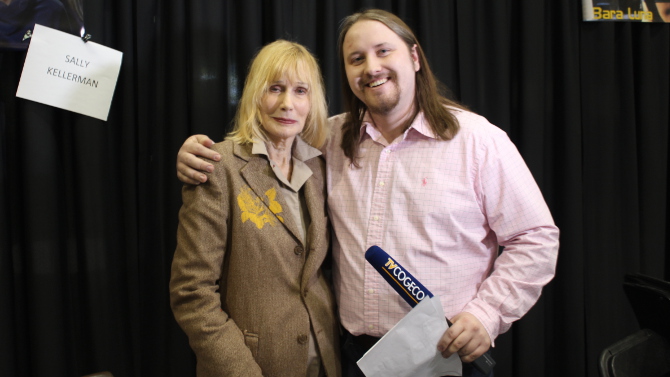 Rebel With a CauseViva Zapata!January 31, 2017
Rebel With a CauseViva Zapata!January 31, 2017There is a scene about a quarter of the way into Elia Kazan’s Viva Zapata! where our protagonist, Emiliano Zapata (Marlon Brando), has been arrested for attempting to save the life of a peasant who has been unlawfully arrested. Failing, a number of the impoverished, who witnessed the attempt, plead for Zapata to hide in one of their homes. Moving on, he is soon arrested, and the villagers clap with whatever they have in their reach; working tools, rocks or any other implements, as a way to show their support for the hero as he is ushered away. As the officers transport the man through the wilderness, people pour out of the mountainous forest – soon, droves are leading, following and walking beside the police procession. Eventually overwhelmed by the masses, they free the man, aware that they will never be able to manage the united crowd. It is this scene that perhaps best exemplifies the film. A heartfelt sequence, it shows that solidarity in the face of oppression, that boldly standing up for what is right, is a righteous, albeit difficult stance.
-
Star Pick with Michael Dickson
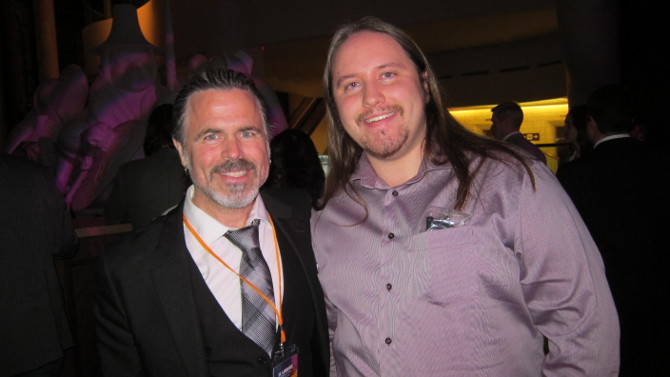 Butch and Sundance Ride OnButch Cassidy and the Sundance KidJanuary 24, 2017
Butch and Sundance Ride OnButch Cassidy and the Sundance KidJanuary 24, 2017One of the most prolific westerns (and sometimes argued to be the last great western) to come out of Hollywood, George Roy Hill adapts William Goldman’s script that brings to life the real, mythical-type figures of Butch Cassidy and the Sundance Kid. The background of the script is quite something, with Goldman sending it out to all of the studios – only one was interested (and that was if he made a major change to it). Instead, a few minor adjustments were made, after which Goldman discovered that every studio in town now desperately wanted it. In the end, it was 20th Century Fox President Richard D. Zanuck (son of co-founder Darryl F. Zanuck) who purchased the screenplay for a whopping 400,000 dollars (the biggest sum ever spent on a script up to that point) – and 200,000 higher than he was allowed to spend. Putting his job on the line, it was a wise choice, as it became the highest grossing motion picture of 1969. Goldman ended up winning the Academy Award for Best Original Screenplay. Originally titled ‘The Sundance Kid and Butch Cassidy’, Zanuck didn’t find that the title sounded right when it was reversed to its final iteration – funnily enough, it now feels utterly awkward in its original form.
-
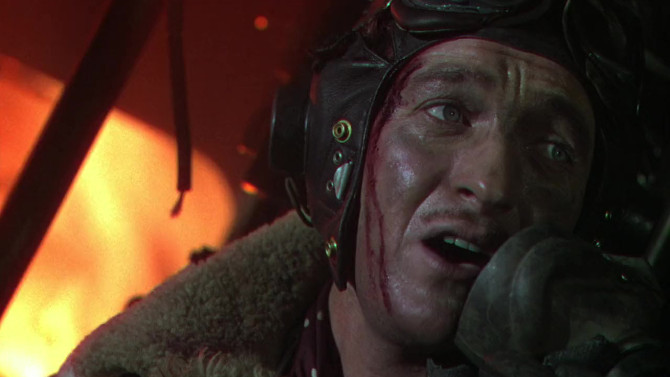
Stairway to Heaven
A Matter of Life and DeathJanuary 13, 2017Born out of the horrors of World War II, famed British filmmakers Michael Powell and Emeric Pressburger released A Matter of Life or Death one year after the conclusion of the hostilities. Cleverly evoking the complexities of the era, the writer/director team fuse together multiple themes that, in some way, make sense of love, life, death, Heaven and the wounds that soldiers suffered during the traumatic affair. Beginning on a grand celestial scale, we are brought forth to an intimate, heartbreaking moment when British Royal Air Force Squadron Leader Peter Carter (David Niven), after ordering his crew to bail out (letting them know that he will soon follow), reveals to an American radio operator, June (Kim Hunter), that his plane is crashing and he has no parachute. His smooth vocals, grievous situation and stiff upper lip attitude leave the woman distraught, and the two fall in love by way of the irregular circumstance. Leaving his dead friend Bob (Robert Coote) on the plane, Carter leaps into the pea soup thick fog just off the English coastline.
-
Star Pick with Sean Kenney
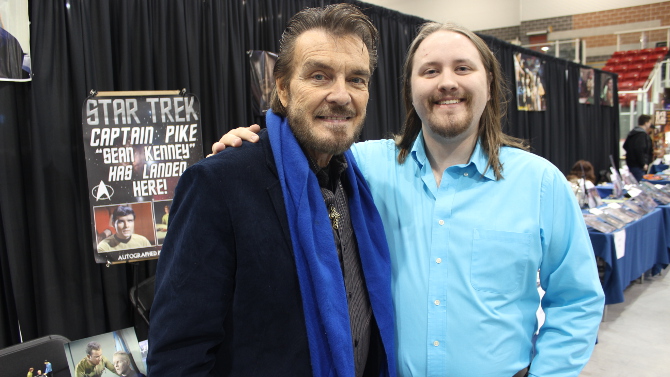 It’s a Wonderful Life is Heaven-SentIt's a Wonderful LifeDecember 23, 2016
It’s a Wonderful Life is Heaven-SentIt's a Wonderful LifeDecember 23, 2016It is hard to fathom that Frank Capra’s classic feature It’s a Wonderful Life turns 70 this year (on December 20th to be exact). A movie of vital importance to millions of people the world over, it has not only become a Christmas staple, but also a yuletide tradition for many a family, though this was not always the case. Getting off to a more than sluggish start (losing major money at the box office), it was not originally a hit (or believed by most critics that it would ever leave an impactful mark on the spools of film history). In a miracle befitting of the fantasy drama, the tides for the downtrodden film turned around in the 1970s (thanks to a fortunate copyright lapse), finding a more than accepting audience on the television screen. Taking off, it has gained the traction director Capra once had hoped for, for his story – though he never truly expected it to get a second chance. He actually said (to The Wall Street Journal in 1984): "It’s the damnedest thing I’ve ever seen. . .The film has a life of its own now and I can look at it like I had nothing to do with it. I’m like a parent whose kid grows up to be President. I’m proud. . . but it’s the kid who did the work. I didn’t even think of it as a Christmas story when I first ran across it. I just liked the idea."

